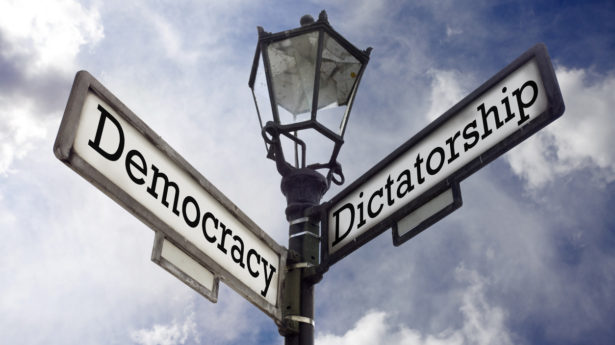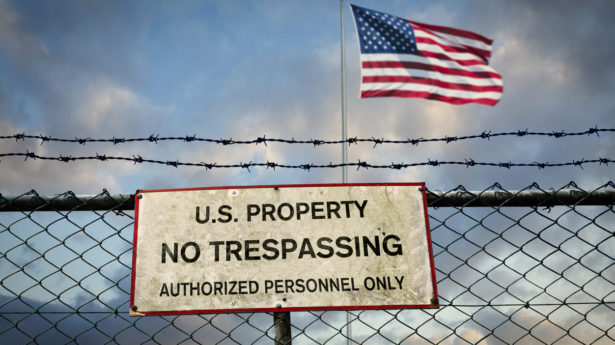The Unitarian Universalist Service Committee advances human rights through grassroots collaborations.
UUSC Policy Round-Up for the Week of August 24, 2020

By on August 28, 2020
Welcome to our recurring feature on the UUSC blog. Each week, we review key policy developments affecting UUSC’s human rights goals and our partners. This includes a look at recent Congressional negotiations, legislation moving on Capitol Hill, new regulations and other forms of executive action. We pay special attention to places where UUSC and our partners are having an impact—and where our members can play a key role in making progress happen. Check back each week for fresh updates.
Three Years of Waiting for Justice: This week tragically marks three years since military violence in Burma drove nearly a million Rohingya people from their homes in Rakhine state. These so-called “clearance operations” capped decades of government policies aimed at erasing the Rohingya identity and forcing Rohingya people in Burma to live under apartheid conditions. International law has a term for systematic actions designed to destroy a group of people: genocide. Yet, in spite of overwhelming evidence and the consensus of many scholars and legal experts, the U.S. government has still failed to officially declare that genocide was committed against the Rohingya: a declaration, which if made, calls for greater international accountability from the Burmese government. This unwillingness to use the term genocide on the part of a powerful and influential government is a major hindrance to Rohingya survivors’ pursuit of justice. For this reason, UUSC is calling on the U.S. State Department to issue a formal genocide determination. On August 19, UUSC joined a coalition letter signed by more than 30 faith leaders across traditions and denominations, urging Secretary of State Mike Pompeo to #CallItGenocide. We are also calling on our members to write to the Secretary directly to lift up this demand for justice. UUSC supporters can find resources to learn more about the genocide in Burma and take action here.
TPS for South Sudan: The September 3 deadline is approaching fast for the U.S. government to decide the future of Temporary Protected Status (TPS) for South Sudan—a humanitarian program that would allow South Sudanese nationals in the United States to reside here safely without fear of deportation. In light of ongoing conflict and humanitarian crisis in South Sudan, it is vital that the Trump administration immediately extend the status for current South Sudanese TPS holders, while also redesignating the country, which would allow more recently-arrived South Sudanese immigrants to gain protection from deportation. Over the past several decades, TPS has shielded thousands of immigrants from being removed to countries in the throes of war, natural disaster, and other forms of humanitarian crisis. Since 2017, however, the Trump administration has moved to dismantle the program, cancelling TPS for the vast majority of people who had this status and leaving 400,000 people at the mercy of a court ruling that will decide their ability to stay in the United States. South Sudan remains one of the very few countries to retain a TPS designation under this administration. The U.S. government must not turn its back now on even more innocent people escaping war and humanitarian catastrophe. UUSC has joined a coalition letter with more than 200 interfaith organizations and leaders calling for an 18-month extension and redesignation of TPS for South Sudan.
An Assault on Immigrants of Color: The Trump administration’s war on asylum entered a new phase this week, though there were also small signs of hope. On August 25, the Trump administration’s final rule eliminating work permits for many asylum-seekers went into effect. As a result, families will be cruelly stripped of a vital economic lifeline while they await the outcome of an asylum process that can drag on for years. This regulatory change is only one of several recent initiatives designed to make life harder for immigrants and asylum-seekers navigating the legal process. In another regulatory change scheduled to take effect in October, U.S. immigration authorities plan to sharply increase filing fees for asylum, naturalization, and other benefits. Such policies, like other Trump administration directives, would cruelly exclude many working-class immigrants of color from humanitarian protection and citizenship. These moves come as the nonpartisan Government Accountability Office found that the chief officials responsible for these regulations are serving unlawfully. There was one positive development, however. On August 14, multiple civil rights groups and legal advocates filed the first major challenge in court to the administration’s “Title 42” policy, which it announced under the pretext of responding to COVID-19. As UUSC has repeatedly pointed out, this policy of expelling virtually all asylum seekers without due process is not only morally bankrupt and at odds with public health—it also directly violates U.S. and international law governing the treatment of refugees and unaccompanied children. We pray this lawsuit will spell the end of this blatantly unlawful policy and a restoration of full and fair asylum screening at the border.
Violating Indigenous Rights in the Arctic: On August 17, the Trump administration’s Department of the Interior pushed ahead with long-feared plans to begin oil and gas drilling in the Arctic National Wildlife Refuge. These extractive projects would permanently alter and degrade lands essential to the livelihoods of the Alaskan Native Gwich’in people, while further contributing to the climate crisis that threatens the world. UUSC is one of more than 165 organizations that has called for a halt to all plans for oil and gas extraction in the Arctic. We continue to express solidarity with the Gwich’in people in their struggle to protect their sacred lands.
Yes, Stephen Miller is Racist: On August 24, the Republican National Committee (RNC) adopted a resolution against the Southern Poverty Law Center (SPLC), attempting to discredit the civil rights organization, well-known for monitoring and identifying hate groups. This resolution is particularly concerning given the surge of hate group activity within the Republican party, including the recent victory in a GOP primary race of Laura Loomer, who describes herself as a “proud Islamophobe.” In an ironic twist, the resolution came just a day before the RNC was forced to pull one of its planned convention speakers for posting an anti-Semitic QAnon-linked conspiracy theory on her social media. The resolution may also have been intended as retaliation for SPLC’s publication of emails linking senior White House policy advisor Stephen Miller to white nationalist websites. Inconvenient for the Trump administration as SPLC’s reporting may be, however, it remains true. As UUSC has said before, Stephen Miller has not only endorsed racist ideologies and sentiments, he and the rest of the Trump administration have worked to implement policies that advance a white supremacist vision for the country. By attacking a well-reputed civil rights organization for pointing out the disturbing ties between Trump administration officials and far-right groups, the RNC threatens to become a haven for toxic ideologies. All political parties must unite in denouncing white supremacy, anti-Blackness, anti-Semitism, Islamophobia, anti-LGBTQ and Neo-Nazi belief systems in all their forms.
***
About UUSC: Guided by the belief that all people have inherent worth and dignity, UUSC advances human rights globally by partnering with affected communities who are confronting injustice, mobilizing to challenge oppressive systems, and inspiring and sustaining spiritually grounded activism for justice. We invite you to join us in this journey toward realizing a better future!
Photo Credit: iStock – Sagittarius Pro

